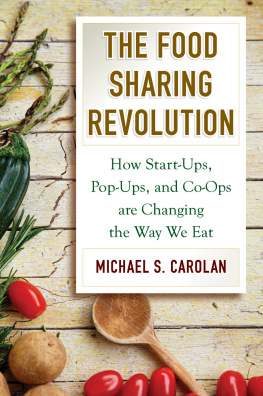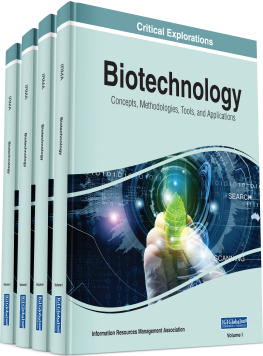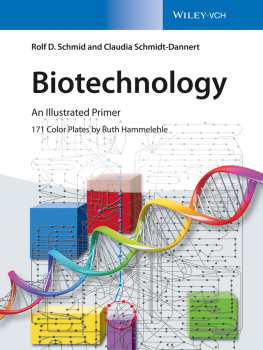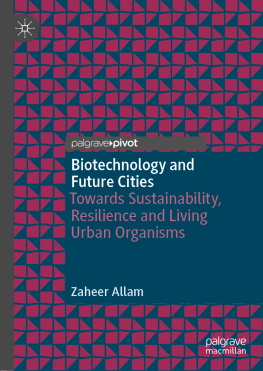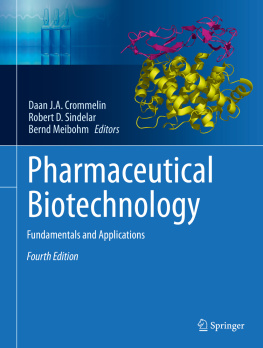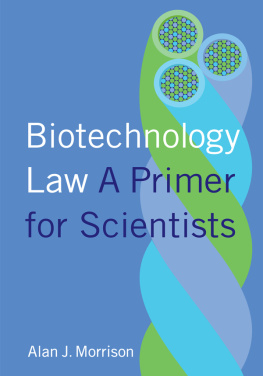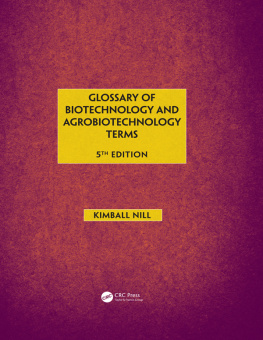DECENTERING BIOTECHNOLOGY
Theory, Technology and Society
Series Editor: Ross Abbinnett, University of Birmingham, UK
Theory, Technology and Society presents the latest work in social, cultural and political theory, which considers the impact of new technologies on social, economic and political relationships. Central to the series are the elucidation of new theories of the humanity-technology relationship, the ethical implications of techno-scientific innovation, and the identification of unforeseen effects which are emerging from the techno-scientific organization of society.
With particular interest in questions of gender relations, the body, virtuality, penality, work, aesthetics, urban space, surveillance, governance and the environment, the series encourages work that seeks to determine the nature of the social consequences that have followed the deployment of new technologies, investigate the increasingly complex relationship between the human and the technological, or addresses the ethical and political questions arising from the constant transformation and manipulation of humanity.
Other titles in this series
Contested Categories
Life Sciences in Society
Edited by Susanne Bauer and Ayo Wahlberg
ISBN 978 0 7546 7618 8
Technology and Medical Practice
Blood, Guts and Machines
Edited by Ericka Johnson and Boel Berner
ISBN 978 0 7546 7836 6
The Genome Incorporated
Constructing Biodigital Identity
Kate ORiordan
ISBN 978 0 7546 7851 9
Decentering Biotechnology
Assemblages Built and Assemblages Masked
MICHAEL S. CAROLAN
Colorado State University, USA
ASHGATE
Michael S. Carolan 2010
All rights reserved. No part of this publication may be reproduced, stored in a retrieval system or transmitted in any form or by any means, electronic, mechanical, photocopying, recording or otherwise without the prior permission of the publisher.
Michael S. Carolan has asserted his right under the Copyright, Designs and Patents Act, 1988, to be identified as the author of this work.
Published by
Ashgate Publishing Limited
Wey Court East
Union Road
Farnham
Surrey, GU9 7PT
England
Ashgate Publishing Company
Suite 420
101 Cherry Street
Burlington
VT 05401-4405
USA
www.ashgate.com
British Library Cataloguing in Publication Data
Carolan, Michael.
Decentering biotechnology : assemblages built and assemblages masked. -- (Theory, technology and society)
1. Biotechnology--Philosophy. 2. Object (Philosophy) 3. Biotechnology--Patents.
I. Title II. Series
660.6-dc22
Library of Congress Cataloging-in-Publication Data
Carolan, Michael S.
Decentering biotechnology : assemblages built and assemblages masked / by Michael
Carolan.
p. cm. -- (Theory, technology, and society)
Includes bibliographical references and index.
ISBN 978-1-4094-1005-8 (hardback) -- ISBN 978-1-4094-1006-5 (ebook)
1. Biotechnology--Patents. 2. Biotechnology--Social aspects. I. Title.
TP248.175.C37 2010
660.6--dc22
2010017415
ISBN 9781409410058 (hbk)
ISBN 9781409410065 (ebk-ePUB)

Printed and bound in Great Britain by MPG Books Group, UK
Contents
List of Tables and Figures
Tables
Figures
List of Frequently Used Abbreviations
CBD | Convention on Biological Diversity |
EU | European Union |
GE | Genetically Engineered |
IPR | Intellectual Property Rights |
TRIPs | Trade Related Aspects of Intellectual Property Rights |
US | United States |
WTO | World Trade Organization |
Acknowledgments
This book, like biotechnology, is an effect of a massive assemblage. As such, actors will undoubtedly be missed in this acknowledgment chapter. This project goes back years, to when a young scholar started to be curious about categorical constructs in law, especially patent law. I was struck early on by how understandings of nature changed in patent law. I wanted to know more. Legal scholars seemed uninterested, or ill-equipped (theoretically speaking), to explain this clear case of the courts picking and choosing which networks to elevate to the discursive surface and which to deny when justices turn their gaze upon biological artifacts. It took off from theremy interest in biotechnology itself. I wanted to show how biotechnologybeyond its social impacts and economic consequenceswas itself worthy of sociological study. Literally, a work of Sociology of Biotechnology: thats what this book is.
I have had the benefit of sharpening the analytic and theoretical tools on display in this book on the whetstone of professional conferences, public lectures, and peer-review. To all those who have debated with me about biotechnology, whether in person or from some distant computer: thanks. While the arguments contained in this book reflect my current musings on the subject I would be remiss if I excluded from the assemblage past work I have published on the subject. Those works include the following:
Carolan, Michael S. 2010. The Mutability of Biotechnology Patents: From Unwieldy Products of Nature to Independent Object/s, Theory, Culture and Society 27(1): 11029.
Carolan, Michael S. 2009. The Problems with Patents: A Less Than Optimistic Reading of the Future, Development and Change 40(2): 36188.
Carolan, Michael S. 2008. Constructing the Pure Inventor: Individual, Collective, and Corporate Authorship within Patent Law, New Genetics and Society 27(4): 30110.
Carolan, Michael S. 2008. From Patent Law to Regulation: The Ontological Gerrymandering of Biotechnology, Environmental Politics 17(5): 74965.
Carolan, Michael S. 2008. Making Patents and Intellectual Property Work: The Asymmetrical Harmonization of TRIPS, Organization and Environment 21(3): 295310.
Carolan, Michael S. 2007. Mapping Biotechnology: From Epistemic Artifacts to Geographies of Control, Nature and Culture 2: 11538.
It is not an understatement to say that this book was made possible because of the persistence of Neil Jordan, the Commissioning Editor at Ashgate. When Neil approached me inquiring about my interests in writing a book on biotechnology from a science and technology studies angle I was initially hesitant. After working on the subject for a couple years I was experiencing burn out. I felt like I needed some newsome freshsubject matter. Fortunately, Neils persistence and sincere interest in my work changed my mind. Writing this book has been a joy for it forced me to explore areas I had left untouched in the past.
Finally, Nora: thank you. You somehow put up with me through this process. From the high moments, when I felt like I had made an interesting empirical or theoretical breakthrough, to the not-so-high moments, like when I was stuck on something and appeared to be living in a parallel universe. Moreover, youve got an eagle eye for editorial details. On top of an already amazingly busy schedule you manage to always find time to read my manuscripts. I dont know how you do it but you do. For that I am tremendously grateful.
While I am happy to share the stage when it comes to whats right, interesting, and/or valuable about this book, I am unwilling to allocate blame due to errors and/or omissions to anyone but myself.
Next page

